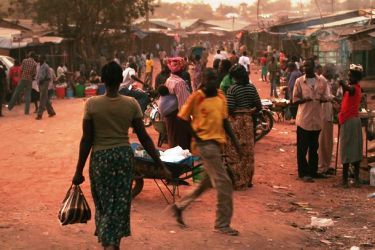South Sudan not against foreign nationals says Minister
July 6, 2013 (JUBA) – South Sudan has said that recent orders asking foreigners in the country to regularise their status should not be interpreted to mean that the country is against foreigners.

“The policy of the government is that those who come must possess legal documents, register with the ministry of interior through immigration authorities upon arrival, and show respect to our people and laws as well as our way of living,’ said Alison Manani Magaya.
The minister’s remark follows complaints from foreign nations in South Sudan that they are being targeted. Most of the foreigners operating in Juba and other parts of South Sudan are from the East African region. Magaya however dismissed the claim that they are being targeted.
“It is not true that we are targeting foreigners. The foreign nationals in this country are even more comfortable than in their own countries. You can see them freely interacting and working with our people in market places, in hotels, in residential areas, in public offices and private institutions.’’
The minister cited thriving business, the free movement of citizens from neighbouring countries such as Uganda, Uganda, Kenya, Ethiopia, and Congo as testimony that South Sudan welcomes foreign nationals.
South Sudan attained independence in 2011 after two decades of conflict between the South and North of Sudan. The resultant peace provided business opportunities for nationals from neighbouring countries such as Uganda, Kenya, Ethiopia and Congo.
Minister Magaya however says some of the foreign nationals do not have proper documentations.
“Now you find there are Ugandan and Kenyans everywhere in Juba and in the States. There are Ethiopians and Eritreans. There are Somalis and people from other countries who have been living here. Some of them do not have proper documents. These are the people we want to regularise.’’
Magaya said it was the duty of his ministry together with relevant institutions and citizens to ensure that proper controls are put in place so that law and order are maintained in the country.
Landlords and hotels are now required to check in a non -discriminatory manner the immigration status of their tenants. The Inspector General of police, Pieng Deng Kuol, said the requirement for foreigners to be rented a house would be valid documents like a passport, or a combination of birth certificate, national insurance number and naturalisation certificate or right of abode certificate businesses that fail to implement the directive will have their licences revoked according to the interior minister.
But landlords say they are not ‘immigration experts’ and as such they cannot be expected to do the work of border police.
Tightening illegal operation of foreign nationals in South Sudan is part of a comprehensive review of the Immigration Bill which will be introduced later this year.
Government officials including President Salva Kiir Mayardit have expressed concern echoing widely held views by the public that foreigners are taking jobs which could be done by locals.
(ST)
